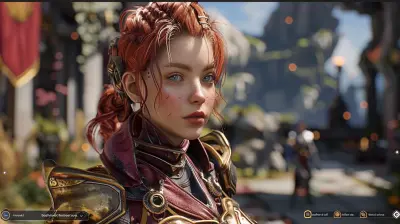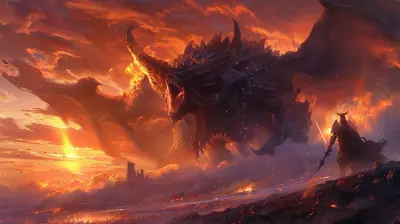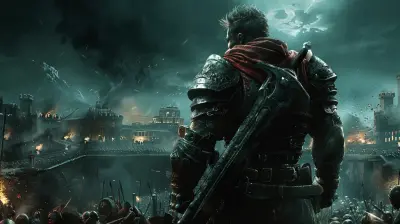Creating Dynamic Political Systems in Game Worlds
21 May 2025
Imagine stepping into a game world where kings fall, rebellions rise, and political alliances shift with the precision and unpredictability of a real-life Game of Thrones. Sounds thrilling, right? This is the magic of dynamic political systems in gaming—a feature that elevates immersion and gameplay depth to jaw-dropping levels. Let’s dive into why these systems matter, how they work, and what makes them so captivating for players like you and me.
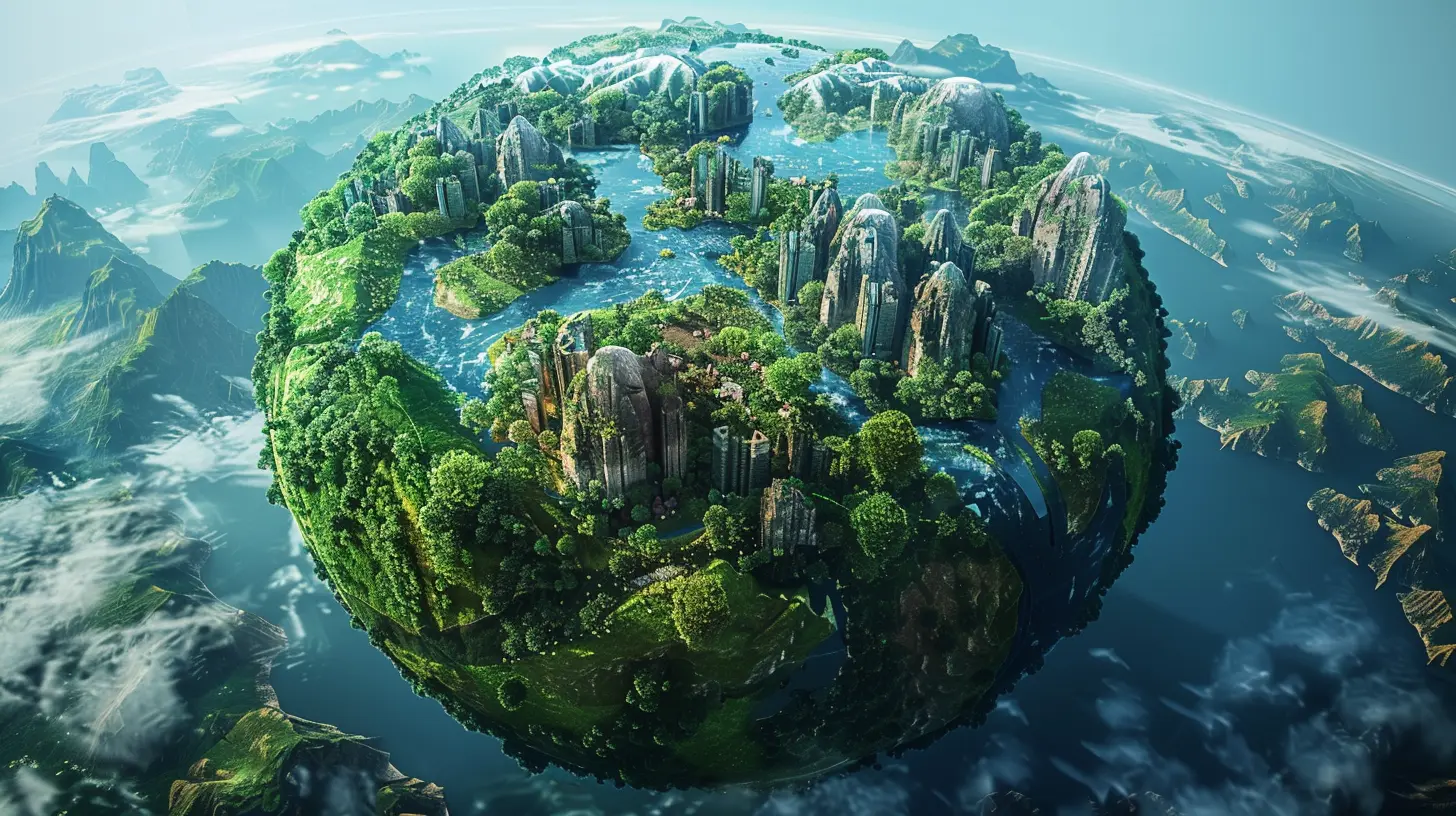
Why Political Systems in Games Matter
Okay, let’s be real—why should political systems even be a thing in games? Aren’t we here to slay dragons, solve puzzles, or shoot enemies? Well, yes, but adding politics to the mix can make the game world feel alive. Think about it: every decision you make carries weight, creating ripples that affect not only you but everyone and everything in the virtual world.Political systems provide a narrative backbone. They’re not just about who’s in charge; they’re about power struggles, competing interests, and moral dilemmas. Whether it’s deciding the fate of an oppressed peasant class or forming alliances with morally ambiguous leaders, political mechanics let you grapple with complex choices. And let’s be honest—who doesn’t love a bit of drama?
In short, adding a political system is like giving your game world its own pulse. It reacts, adapts, and evolves, shaping both the gameplay and your experience.
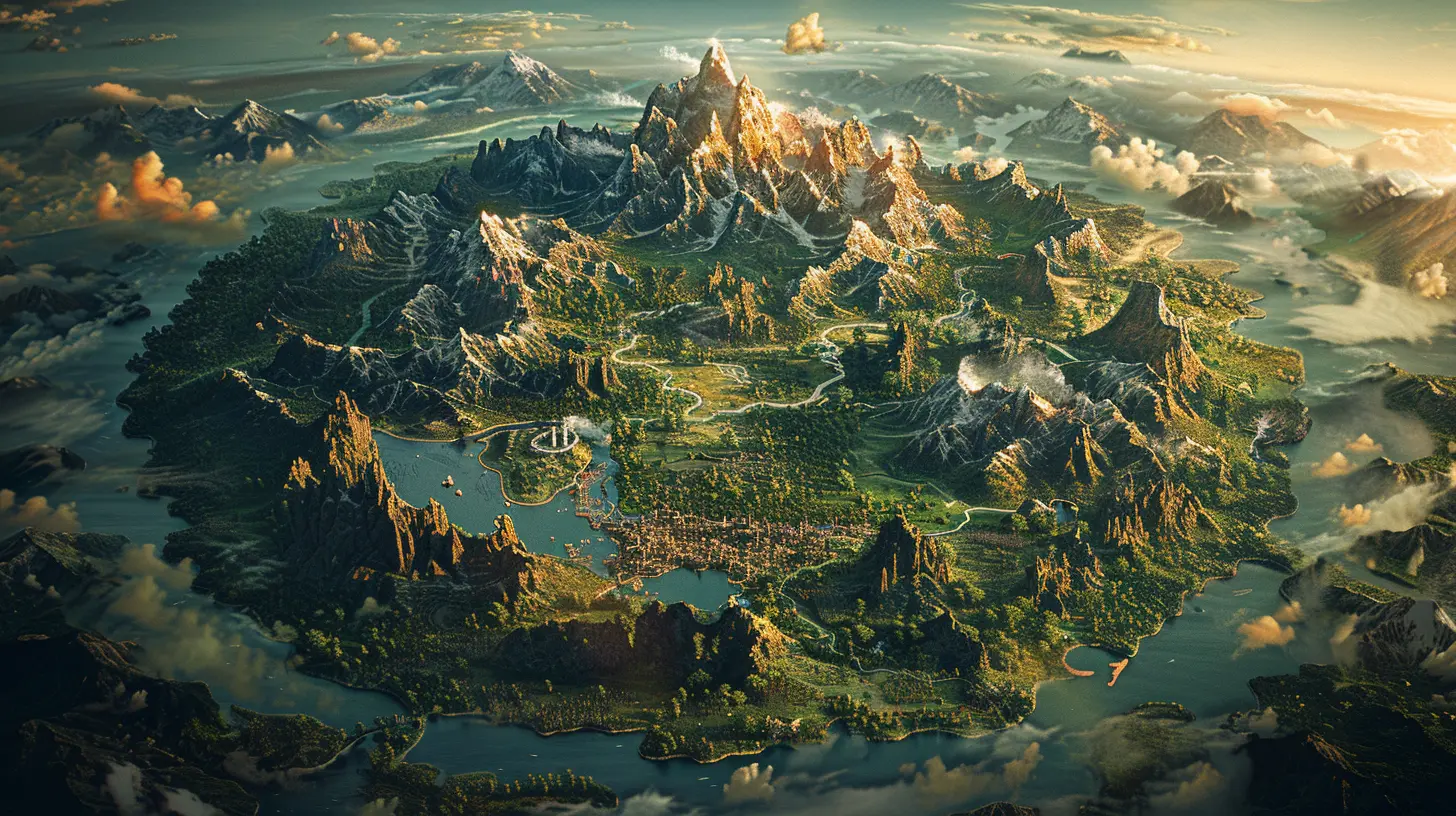
What Makes a Political System Dynamic?
Now, not all political systems are created equal. Some are static—basically, you’re just following a pre-written script where nothing you do changes the storyline. Yawn. Dynamic political systems, on the other hand, are constantly evolving based on your decisions, external forces, or even random events. They’re unpredictable, and that’s where the fun lies.1. Player Agency
Player agency is the cornerstone of a dynamic system. Your actions should matter. For example, if you assassinate a corrupt leader in a medieval RPG, it should trigger consequences—maybe a power vacuum, civil war, or even a new tyrant rising to power. Without player-driven influence, the system feels hollow, like a background decoration rather than a living, breathing part of the game.2. Interconnectedness
In a good political system, every faction, character, or decision should be interconnected. It’s like a spider’s web—tug on one strand, and it reverberates across the others. Take The Witcher 3, for instance. Aligning yourself with a particular monarch can tip the balance of power in that kingdom and ripple out to affect which merchants or allies are available to you later.3. Unpredictability
A touch of chaos is essential. Scripted events are fine, but dynamic systems shine when they throw curveballs at you. Maybe a neighboring faction stages a coup just as you’re planning to expand your territory or an ally betrays you for political gain. Randomness keeps players on their toes, making the virtual world feel alive and unscripted.4. Emergent Storytelling
One of the coolest things about dynamic political systems is that they allow for emergent storytelling. These are the moments where a player’s unique actions create a story that wasn’t pre-written by the developers. Maybe you accidentally instigate a civil war by siding with the wrong faction, or a minor NPC you helped five hours ago ends up becoming a major political player. These organic, unplanned stories create unforgettable gaming experiences.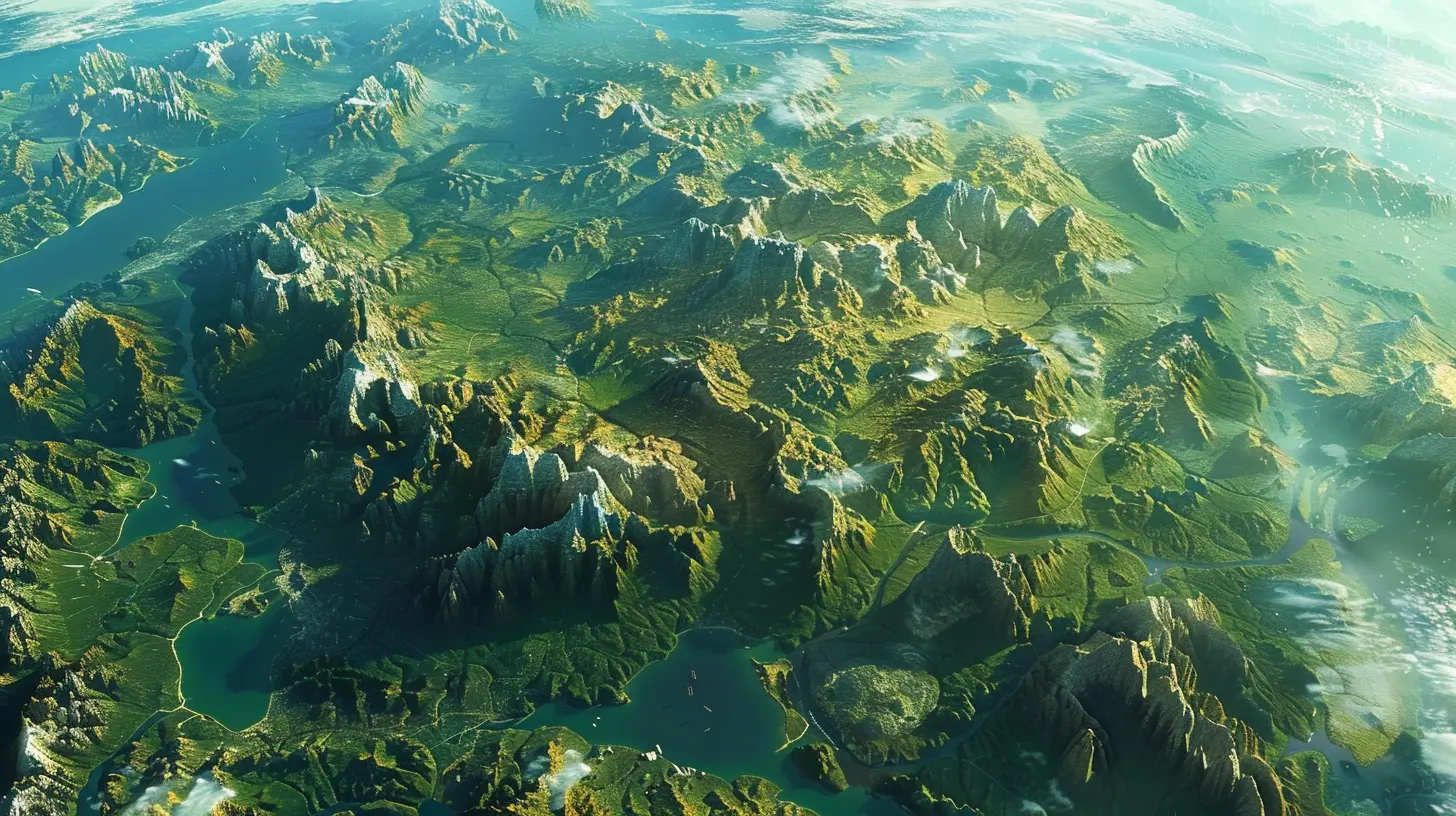
Examples of Political Systems in Games
Let’s take a look at a few games that really nailed this concept. Fair warning: by reading this, you might feel an overwhelming urge to binge-play them all.1. Crusader Kings III
If there’s one game that basically screams political madness, it’s Crusader Kings III. In this grand strategy game, you’re not just managing armies but navigating family feuds, dynastic marriages, and kingdom-wide conspiracies. The politics here are personal—you can marry off your daughter to secure an alliance or orchestrate your rival’s “accidental” death during a hunt. It’s a masterclass in emergent storytelling, where every decision feels like a roll of the dice.2. The Elder Scrolls V: Skyrim
While Skyrim might not have the most complex political system, the ongoing civil war between the Stormcloaks and the Empire adds a nice layer of political intrigue. Choosing a side impacts various aspects of the game, from townsfolk conversations to the banners flying in different cities. It’s a more subtle example, but effective nonetheless.3. Mount & Blade II: Bannerlord
This is a game that slaps you in the face with political nuance. In Bannerlord, you’re not just fighting battles but also managing diplomacy, trade, and alliances. You can broker peace treaties, negotiate with rival factions, or overthrow leaders entirely. The coolest part? The world evolves with or without you, so you’re always playing catch-up in this political chess match.4. Mass Effect Series
How could we not mention Mass Effect? While it’s more sci-fi than medieval intrigue, the political decisions you make ripple across the entire trilogy. Your choices regarding alliances, betrayals, and leadership shape the galaxy's fate—talk about pressure!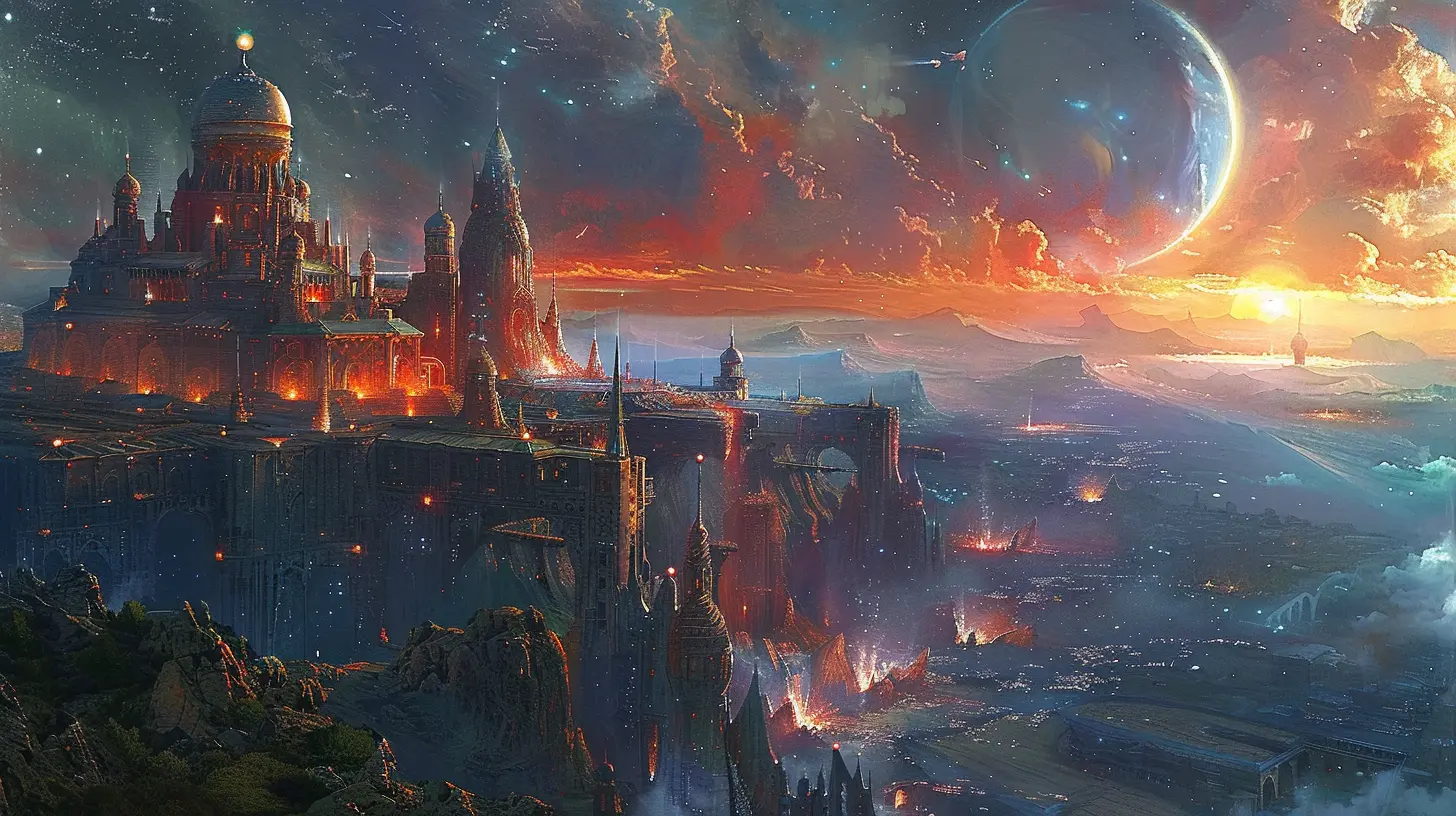
How to Design a Dynamic Political System: A Game Developer’s Perspective
If you’re a game developer (or just a curious gamer interested in game design), you might be wondering how to actually create such a system. Here’s a roadmap to get you started:1. Create Factions with Goals
Every faction needs a purpose. Are they fighting for independence? Seeking revenge? Hoarding wealth? Give each faction a clear set of goals and values, making their interactions and conflicts feel authentic.2. Add Layers of Complexity
Politics isn’t just about good guys versus bad guys—it’s messy and multi-layered. Introduce grey areas where no choice is entirely right or wrong. Players should feel the weight of their decisions.3. Introduce NPCs with Personality
One-dimensional characters won’t cut it. Populate your game with NPCs who have their own motivations, fears, and ambitions. Maybe a seemingly loyal advisor is secretly scheming against you, or an outspoken critic becomes your strongest ally. Make them unpredictable.4. Incorporate Dynamic Events
Think of dynamic events as the spice in your political stew. These could be random occurrences (like a plague or famine) or player-triggered actions (like assassinations or alliances) that shake up the political landscape.5. Keep It Reactive
Your system should react to player decisions in meaningful ways. Overthrowing a tyrant? Cool. But how does that affect trade in the region or the morale of neighboring factions? Every decision should send ripples through the game world.The Challenges of Dynamic Political Systems
Of course, no system is perfect. Introducing political dynamics can also create challenges for game developers and players alike.- Complexity Overload: Too many moving parts can overwhelm players. It’s a fine line between depth and confusion.
- Balancing AI: Creating believable and challenging AI for political systems is tough. You don’t want NPCs that feel dumb, but you also don’t want them to be borderline omniscient.
- Player Fatigue: If politics dominate every aspect of the game, it can feel exhausting. Developers need to balance political intrigue with other gameplay elements to keep things fresh.
Why We’re Drawn to Political Drama in Games
Let’s face it—humans are naturally drawn to power struggles and conflict. It’s why we’re obsessed with historical dramas, reality TV, and, well, politics in general. Adding this element to games lets us confront high-stakes scenarios in a safe, fictional space. Plus, it gives us all the drama without the real-world consequences (because let’s be honest, nobody wants to deal with actual political fallout).It also taps into our desire to matter. When a game gives us the ability to reshape its world through politics, it feeds our innate sense of agency and control. It’s like being the protagonist of your very own political thriller.
The Future of Dynamic Political Systems in Games
As technology advances, we’re only going to see these systems become more sophisticated. Imagine AI-driven NPCs with unique personalities that evolve over time, or systems that integrate player psychology into decision-making. With tools like procedural generation and machine learning, the potential is limitless.One thing’s for sure: dynamic political systems aren’t going anywhere. They’re becoming a staple of immersive game design, and for good reason. Whether you’re a player craving meaningful choices or a developer aiming to build the next Crusader Kings, the allure of political chaos is simply irresistible.
all images in this post were generated using AI tools
Category:
World BuildingAuthor:

Greyson McVeigh
Discussion
rate this article
3 comments
Tracie Hughes
What a fascinating topic! Dynamic political systems can truly elevate game worlds, adding depth and excitement to player experiences. Imagine influencing alliances and rivalries that shift with every choice! Keep pushing those creative boundaries—your ideas can transform gaming into a vibrant political playground. Game on!
May 27, 2025 at 2:43 PM

Greyson McVeigh
Thank you! I'm glad you found the topic inspiring. Dynamic political systems can indeed enhance player engagement and storytelling. Excited to explore these ideas further! Game on!
Olive McGuffey
Dynamic political systems? Great! Just what I need—another way for my in-game character to get backstabbed by their own allies before I even finish breakfast!
May 25, 2025 at 2:47 AM

Greyson McVeigh
I understand your concern! Dynamic political systems can add depth and intrigue, but we can also design mechanics that encourage player alliances and strategic cooperation to balance the potential for betrayal.
Tia Hurst
This article beautifully captures the complexity of political systems in games. It’s fascinating how player choices can shape immersive narratives and diverse experiences.
May 23, 2025 at 4:33 AM

Greyson McVeigh
Thank you! I'm glad you enjoyed the article and found the exploration of player agency in political systems engaging. It’s a crucial aspect of creating immersive narratives.
